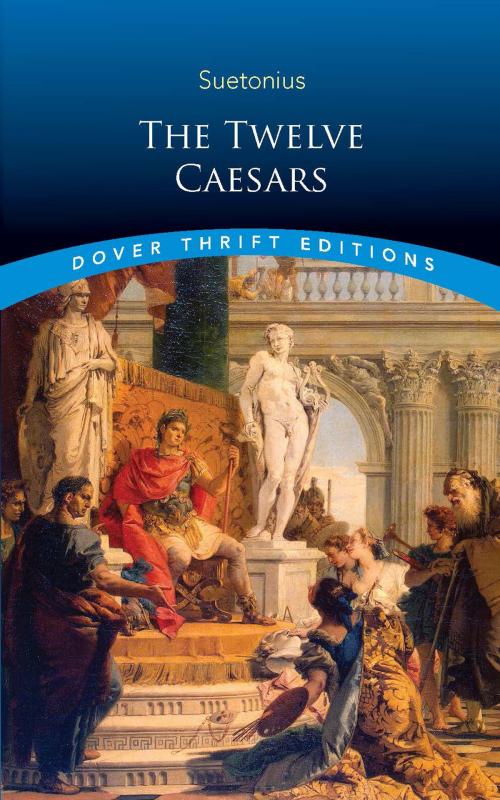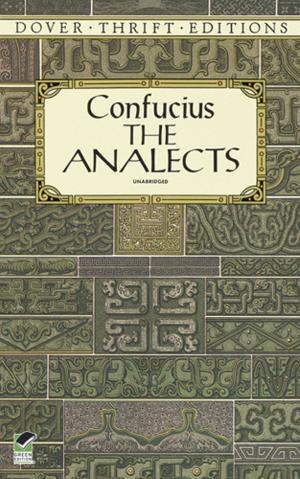| Author: | Suetonius | ISBN: | 9780486830230 |
| Publisher: | Dover Publications | Publication: | April 18, 2018 |
| Imprint: | Dover Publications | Language: | English |
| Author: | Suetonius |
| ISBN: | 9780486830230 |
| Publisher: | Dover Publications |
| Publication: | April 18, 2018 |
| Imprint: | Dover Publications |
| Language: | English |
One of antiquity's great historical resources, this chronicle by an ancient Roman scholar portrays the lives and reigns of Julius Caesar and his immediate successors. Suetonius, who served as private secretary to the Emperor Hadrian, combines research from the imperial archives with firsthand accounts of the rulers' public and private lives. His dramatic narrative, delivered in a straightforward manner, abounds in tales of sex, violence, and betrayal.
Written in A.D. 121, The Twelve Caesars spans the period from 49 B.C.E. to A.D. 96, one of the most important periods in antiquity. Suetonius's vivid characterizations portray the disastrous effects of absolute power: madness, obsessive fear of assassination, and a predilection for acts of sadism and sexual perversity. One of the few surviving sources of its era, this historical treasure is unsurpassed as a fount of anecdotes, observations, and detailed physical descriptions of Roman history.
One of antiquity's great historical resources, this chronicle by an ancient Roman scholar portrays the lives and reigns of Julius Caesar and his immediate successors. Suetonius, who served as private secretary to the Emperor Hadrian, combines research from the imperial archives with firsthand accounts of the rulers' public and private lives. His dramatic narrative, delivered in a straightforward manner, abounds in tales of sex, violence, and betrayal.
Written in A.D. 121, The Twelve Caesars spans the period from 49 B.C.E. to A.D. 96, one of the most important periods in antiquity. Suetonius's vivid characterizations portray the disastrous effects of absolute power: madness, obsessive fear of assassination, and a predilection for acts of sadism and sexual perversity. One of the few surviving sources of its era, this historical treasure is unsurpassed as a fount of anecdotes, observations, and detailed physical descriptions of Roman history.















